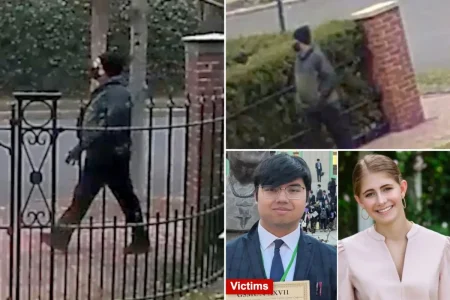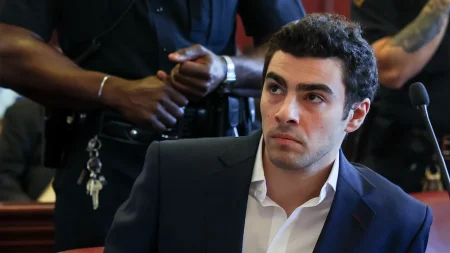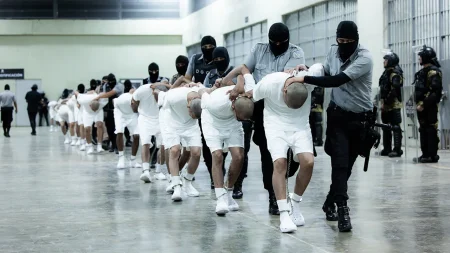Israel’s Identity Crisis: How the Ongoing Conflict Reshapes a Nation’s Self-Perception
In the heart of the Middle East, beneath the weight of history and the shadow of ongoing violence, Israel finds itself at a profound crossroads. The seemingly endless Israeli-Palestinian conflict, now in its latest and perhaps most challenging chapter, has evolved beyond a territorial dispute into something far more existential: a mirror forcing Israel to confront its own national identity. As the conflict persists, it has begun to fundamentally challenge how Israelis perceive themselves, their nation’s founding principles, and their place in the global community. This internal reckoning occurs against the backdrop of international scrutiny, regional instability, and a population increasingly divided on what it means to be Israeli in the 21st century.
The Fracturing of Israel’s Founding Narrative
The modern state of Israel was established in 1948 with a powerful founding narrative—a homeland where Jewish people could find safety after centuries of persecution, culminating in the Holocaust. This narrative emphasized democratic values alongside Jewish identity, positioning Israel as both a necessary sanctuary and a beacon of democratic principles in the Middle East. For decades, these dual pillars of national identity remained relatively balanced in the Israeli consciousness. However, as the conflict with Palestinians extends into its eighth decade, cracks have appeared in this carefully constructed national self-image. “What began as a temporary occupation has become a permanent reality,” explains Dr. Sarah Levinson, historian at Tel Aviv University. “When a democratic state maintains control over millions of people who cannot vote in its elections for generations, it inevitably creates tensions within that society’s understanding of itself.” These tensions have manifested in increasingly polarized Israeli politics, where debates about security concerns versus democratic principles have grown more heated and consequential with each passing year.
Military Necessity Versus Moral Authority
The ongoing conflict has forced Israeli society to grapple with difficult questions about the balance between security requirements and moral considerations. Israel’s military actions, while defended as necessary for national security, have increasingly drawn international criticism. This external pressure has catalyzed internal soul-searching about the moral costs of prolonged conflict. “There’s a growing gap between how we see ourselves and how the world sees us,” notes former Israeli diplomat Yael Dayan. “Israelis have long viewed their military as the most moral fighting force in the world—a necessity born of genuine existential threats. But maintaining that self-perception becomes increasingly difficult as civilian casualties mount and occupation continues.” This disconnect has profound psychological implications for a nation that has long prided itself on ethical conduct even in the face of security challenges. Young Israelis particularly find themselves caught between their mandatory military service and growing awareness of international perspectives on the conflict. This tension plays out in everything from political discourse to cultural expressions, as artists, filmmakers, and writers increasingly explore these contradictions in their work.
The Changing Demographics Reshaping Israeli Society
Israel’s internal identity crisis is further complicated by its evolving demographics. The country’s population now includes secular Jews, Orthodox and ultra-Orthodox communities, Arab citizens of Israel, and immigrants from diverse backgrounds—each with different visions for the nation’s future. The fastest-growing segments of Israeli society—the ultra-Orthodox and Arab Israeli communities—often have fundamentally different perspectives on the Israeli-Palestinian conflict and the nature of the state itself. Meanwhile, the settler movement in the West Bank represents yet another powerful demographic force shaping Israel’s politics and self-perception. “We’re witnessing competing visions of Israeli identity,” explains sociologist Dr. David Hirsch of Hebrew University. “Is Israel primarily a Jewish state or a democratic one when those values appear to conflict? Is it a secular nation with Jewish characteristics or one governed by religious law? These questions have always existed in Israeli society, but the ongoing conflict brings them into sharper relief.” Recent years have seen massive street protests over issues ranging from judicial reform to military service exemptions, revealing how deeply these identity questions have penetrated everyday Israeli life.
Global Isolation and the Crisis of Legitimacy
Perhaps the most profound challenge to Israel’s self-image comes from its changing position on the world stage. A nation founded partly in response to Jewish exclusion and isolation now finds itself increasingly isolated diplomatically. This isolation creates a painful paradox for many Israelis: a state created to ensure Jewish security now faces questions about its legitimacy and conduct. “There’s a growing sense that the world doesn’t understand Israel’s security challenges,” says international relations professor Michael Oren, former Israeli ambassador to the United States. “This perceived lack of understanding reinforces siege mentality in some quarters of Israeli society, while prompting others to question whether current policies are sustainable.” The consequences of this international alienation extend beyond politics into economics, academia, and culture. Israeli universities face boycott campaigns, cultural events encounter protests, and even business relationships sometimes suffer. For a country that has prided itself on scientific innovation, cultural contributions, and economic resilience despite regional hostility, this isolation challenges yet another aspect of national identity. The Abraham Accords, which normalized relations with several Arab states, offered a counternarrative to this isolation, but the fundamental questions about Israel’s relationship with Palestinians remain unresolved.
The Generational Divide and Visions for the Future
A significant generational gap has emerged in how Israelis understand their nation’s identity and the Palestinian conflict. Older generations who experienced Israel’s early wars often prioritize security concerns and view the conflict through the lens of existential threats. Meanwhile, younger Israelis—particularly those born after the Oslo Accords—have known only the reality of Israel as the regional military power maintaining control over Palestinian territories. These different lived experiences create profoundly different perspectives on what constitutes reasonable compromise versus necessary security measures. “My grandparents’ generation was fighting for Israel’s very existence,” says Tamar, a 28-year-old software engineer from Jerusalem. “My parents’ generation focused on building the country. But my generation is asking different questions about what kind of country we want to build.” This generational shift plays out in subtle ways, from changing patterns in military service to evolving attitudes toward potential peace agreements. It also manifests in the increasing prominence of previously marginalized voices in Israeli society—including Arab citizens, Ethiopian Jews, and others whose experiences often differ from the traditional Ashkenazi narrative that dominated Israel’s early decades.
Finding Identity Beyond Conflict
As the Israeli-Palestinian conflict stretches into the foreseeable future, perhaps the most profound identity question facing Israeli society is whether it can define itself beyond the framework of conflict. For decades, national unity was often forged through shared security concerns and external threats. Today, many Israelis yearn for a national identity that transcends the conflict—one defined not by enemies but by positive values and shared visions for the future. “There’s growing recognition that Israel needs to develop a more sustainable sense of self that isn’t primarily defined by conflict,” observes cultural critic Yossi Klein Halevi. “What does Israeli society stand for when not under immediate threat? What values unite its diverse population beyond the necessity of defense?” The search for answers to these questions plays out across Israeli society—in political movements advocating for various solutions to the conflict, in religious communities reimagining ancient traditions for modern realities, and in cultural expressions that attempt to transcend simplistic narratives. Perhaps the most challenging aspect of Israel’s identity crisis is that resolution of these internal questions seems inextricably linked to resolution of the external conflict—creating a circular problem with no clear path forward.
The ongoing Israeli-Palestinian conflict has evolved from a territorial dispute into a mirror reflecting Israel’s deepest questions about itself. As military operations continue and peace remains elusive, Israeli society grapples with fundamental tensions between competing values, visions, and identities. This introspection occurs not in academic abstraction but amid the very real human costs of continued conflict. Whatever path emerges, it seems clear that Israel’s understanding of itself will never be quite the same—transformed not just by external battles but by the internal struggle to reconcile competing visions of what the Jewish state should be in the modern world.









